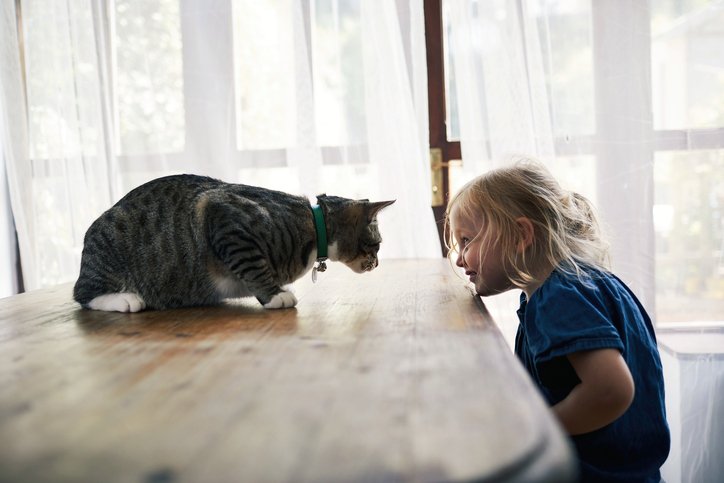My ten year-old daughter loves everything on four legs. Since she could talk she’s been asking for dogs, cats, horses and a pet pig. My husband and I caved to her wishes once we falsely assumed she was old enough to take care of a pet. (If you’re considering getting a pet because you think your six year-old is going to do more to help take care of it than feed it and try to fit it in a tutu, you’re as delusional as we were.)
Fast forward three years and a 100 pound labrador later and our daughter was once again running a campaign for more pets. I wasn’t sure I wanted another pet for the long term but the thought of a puppy was pretty tempting. After stumbling upon a Facebook video from a local rescue farm full of cute puppies in need of foster homes, we decided to jump in and try out fostering. My thought was: If we love fostering, great. If we hate it, it’s only a few weeks of commitment until the puppies are adopted.
Since filling out that foster application we’ve housed 10 puppies, babysat two pigs and transported several rescues to wherever they were headed next. The experience has taught our whole family lessons I never expected. Here are the big and little things we’ve learned along the way:
- Adopt animals who have been fostered in a house setting similar to your own. Looking for a dog who’s good with young kids? Ask your local rescue if they can recommend one. Need a cat who can handle your energetic dog? Find out if they have a cat already being fostered with dogs. A good rescue organization wants to see all of their adoptions succeed. A great way of ensuring success is placing animals into homes where they will get along well with everyone. Animals who have been fostered have had a nice trial phase with another family before coming to you.
- Everyone deserves a chance. The Devoted Barn, the animal rescue and sanctuary that we work with has taught us that there is no animal that doesn’t deserve a chance at a better life. We’ve given Karo syrup to a hypoglycemic pig and learned to connect with animals whose behavior might have seemed scary in the past. My kids are beginning to understand that there are reasons behind the behavior of every animal – and humans aren’t much different!
- We all have to do our part. More than once, while heading to the barn for puppy shots or an extra animal crate, one of my kids has complained about the drive or the lack of YouTube in our vehicle. I’ve noticed these complaints greatly decrease as time has gone on. My kids now understand that they are playing a part in helping animals lead happy, healthy lives. As they’ve seen their work come full circle they’ve seen how important it is to step up and help when they can.
- Everything is temporary. Our house has been crazy with puppies, back to quiet with just one dog, and then chaotic with running piggies. Yes, we might have to form a bucket brigade to wash the poo off these puppies, but now they’re in new homes and we’re back to eating our cereal in the morning uninterrupted. When things get busy or overwhelming, my kids are learning that there is almost always an end in sight, and you might even miss the chaos.
- Compassion, compassion, compassion. While driving one-hour-old puppies from animal control to the rescue barn’s nursery I heard my eight year-old son telling them “I’m sorry your momma isn’t giving you milk. She’s having a hard time being a momma right now. I promise we’re taking you to a good place where everyone will love you.” Nothing compares to the compassion my children have gained for all forms of life after caring for the most vulnerable of animals. That heart-melting moment in the car with my son was worth every midnight puppy-wake up.
I’m so grateful for the lessons our whole family has learned through fostering. This has been a tough year for humanity, and selfishly, fostering has given me a sense of purpose in the craziness happening around us. I hope my children will think back fondly on this experience– all of it except for the smell of eight puppies covered in each other’s poo. They might need to block that part out of their memories so they can do their part in rescuing when they’re old enough to have their own homes.
